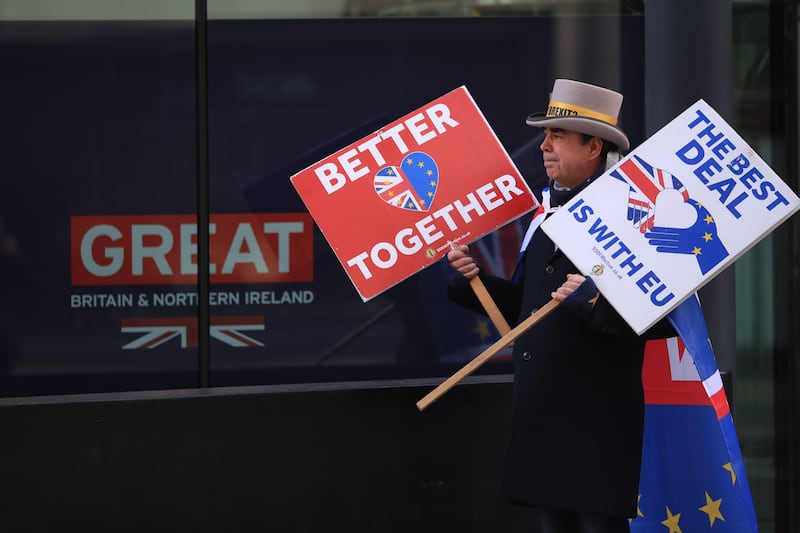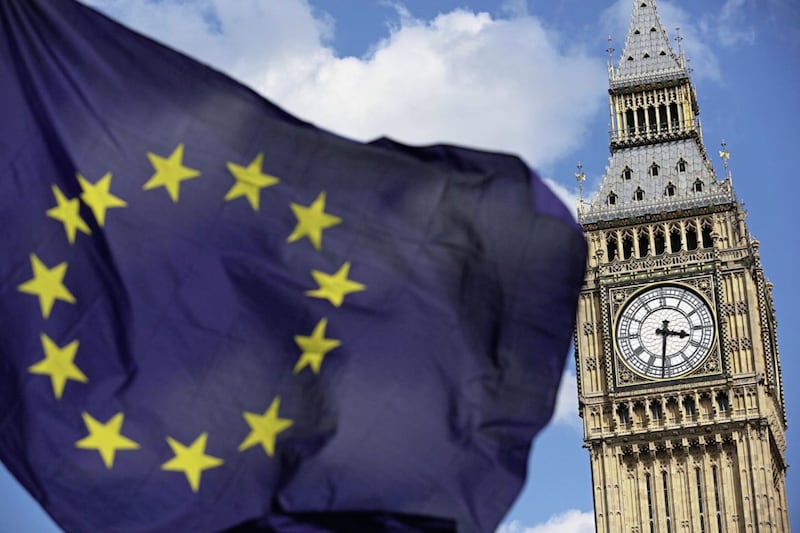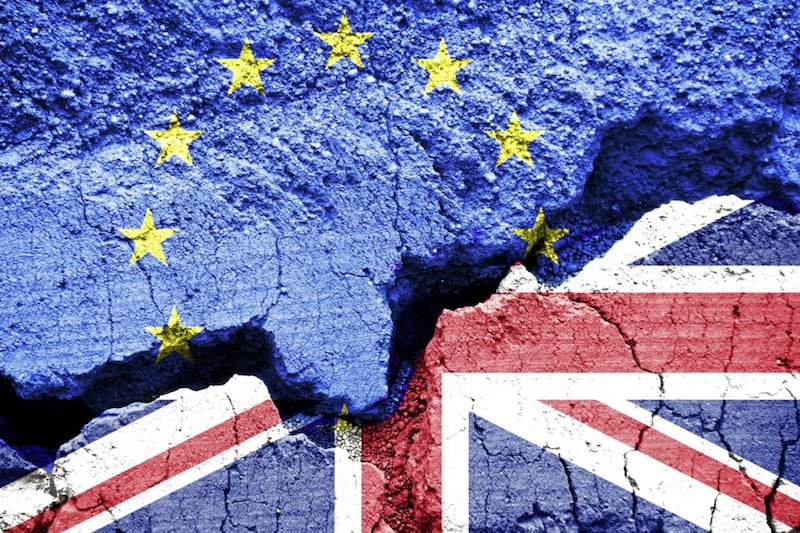The European Union is willing to offer Northern Ireland a different Brexit deal to the rest of the UK.
In a negotiating document released this morning, the EU argues the need for "protection of the gains of the peace process" and the need for a "unique solution" so people can travel freely across the border.
The document however says the onus to sort out the border problem "remains on the UK".
Read the EU's document on Northern Ireland
The EU document stresses the importance of maintaining the terms of the Good Friday Agreement:
It says: "As an essential element of the withdrawal process, there needs to be a political commitment to protecting the Good Friday Agreement in all its parts, to protecting the gains of the peace process, and to the practical application of this on the island of Ireland."
The document also says the UK should take responsibility for finding a "unique solution" so people can continue to cross the Irish border to work, study and receive medical treatment and this "must be achieved in a way which ensures that Ireland's place within the Internal Market and Customs Union is unaffected."
The paper proposes allowing people to continue to cross the border to work, study and receive medical treatment.
No deal on Brexit would be 'utter and complete disaster'
In response to the EU proposals, the Dublin government said: "Our priorities remain protecting the Good Friday Agreement and the peace process, including by avoiding a hard border, and maintaining the Common Travel Area."
It called on the British government to make "substantive commitments and workable solutions" to the question of the Irish border.
"The principles reflected in this paper must underpin any arrangements and solutions to be proposed, developed and agreed in future negotiations," the Dublin government said.
The Brussels paper warned that the UK and Europe will have to assess how north-south cooperation could be impacted if and when EU law ceases to apply in Northern Ireland and whether specific provisions need to be made for this.
Mr Barnier's team called on London to make sure people's rights under the Good Friday Agreement are not affected, including by protecting against discrimination.
They said Irish citizens living in Northern Ireland must keep their rights as EU citizens.
The document called for both London and Brussels to commit to paying what is due under peace dividend funding programmes.
The Brussels paper also described the Common Travel Area, which dates back to the 1920s, as a fundamental right which should be maintained. It said it underpins the peace process.
Mr Barnier accused Britain's Brexit Secretary David Davis and the UK negotiating team of trying to use the Irish border as a "test case".
"This will not happen," he said.
Mr Barnier said he was worried by the positions set out by the UK in its paper on the border between Ireland and Northern Ireland.
He accused Britain of attempting to suspend EU law on the Irish border, including the customs union and the single market, in a kind of "test".
"This would not be fair for Ireland and it would not be fair for the European Union," Mr Barnier said.








